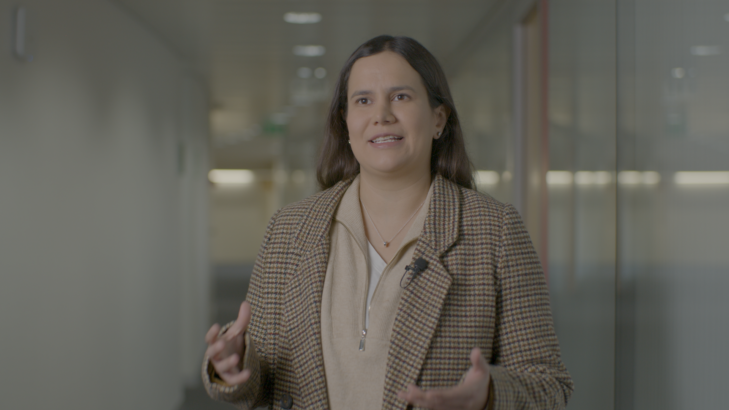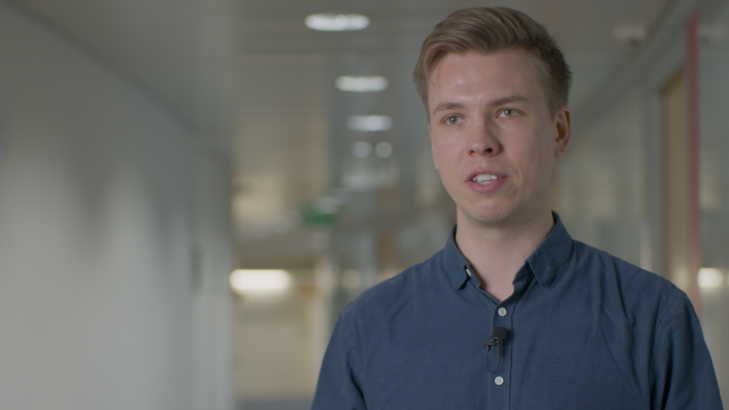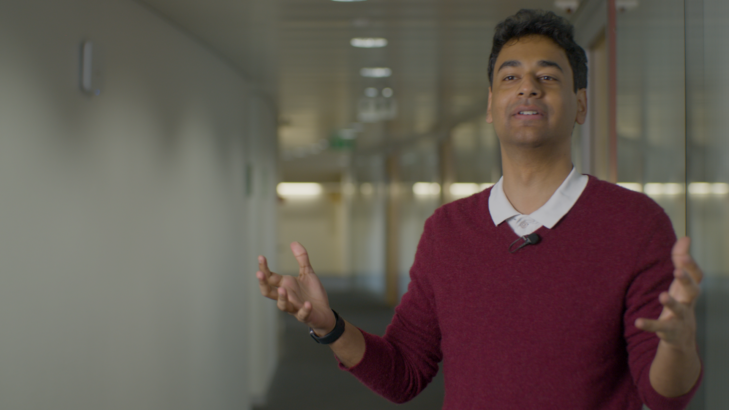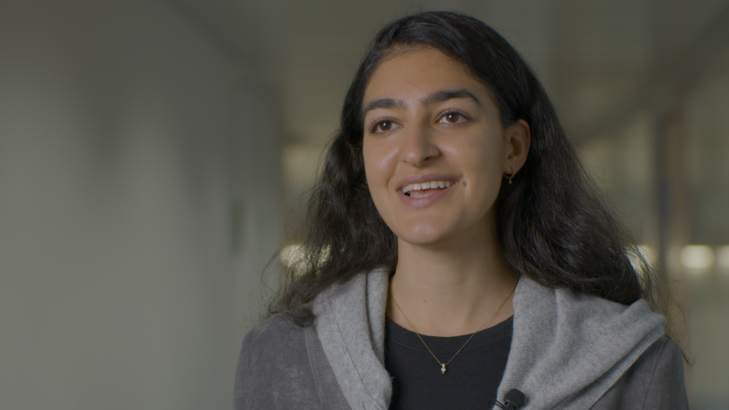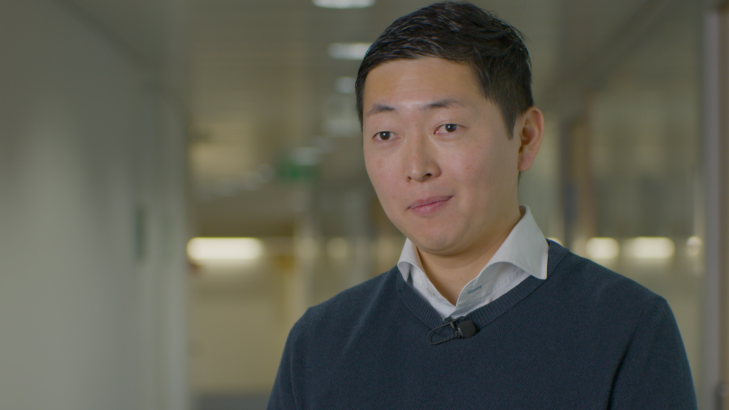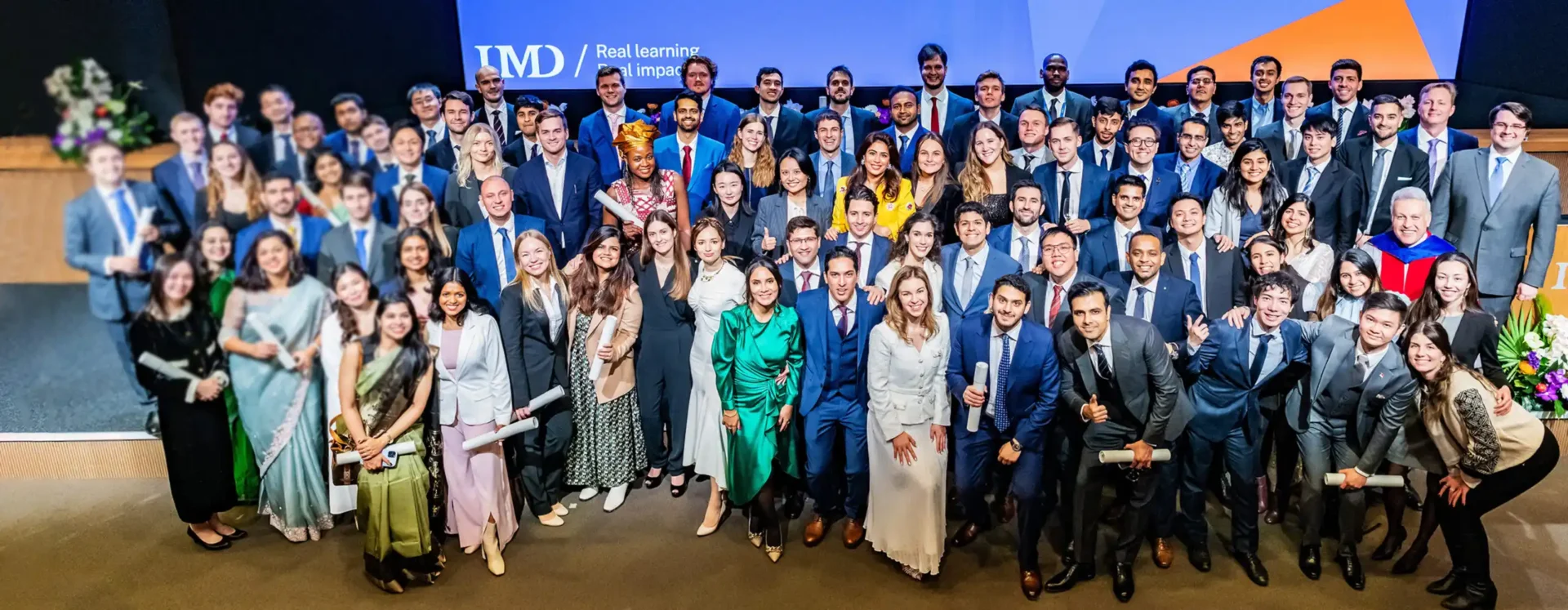
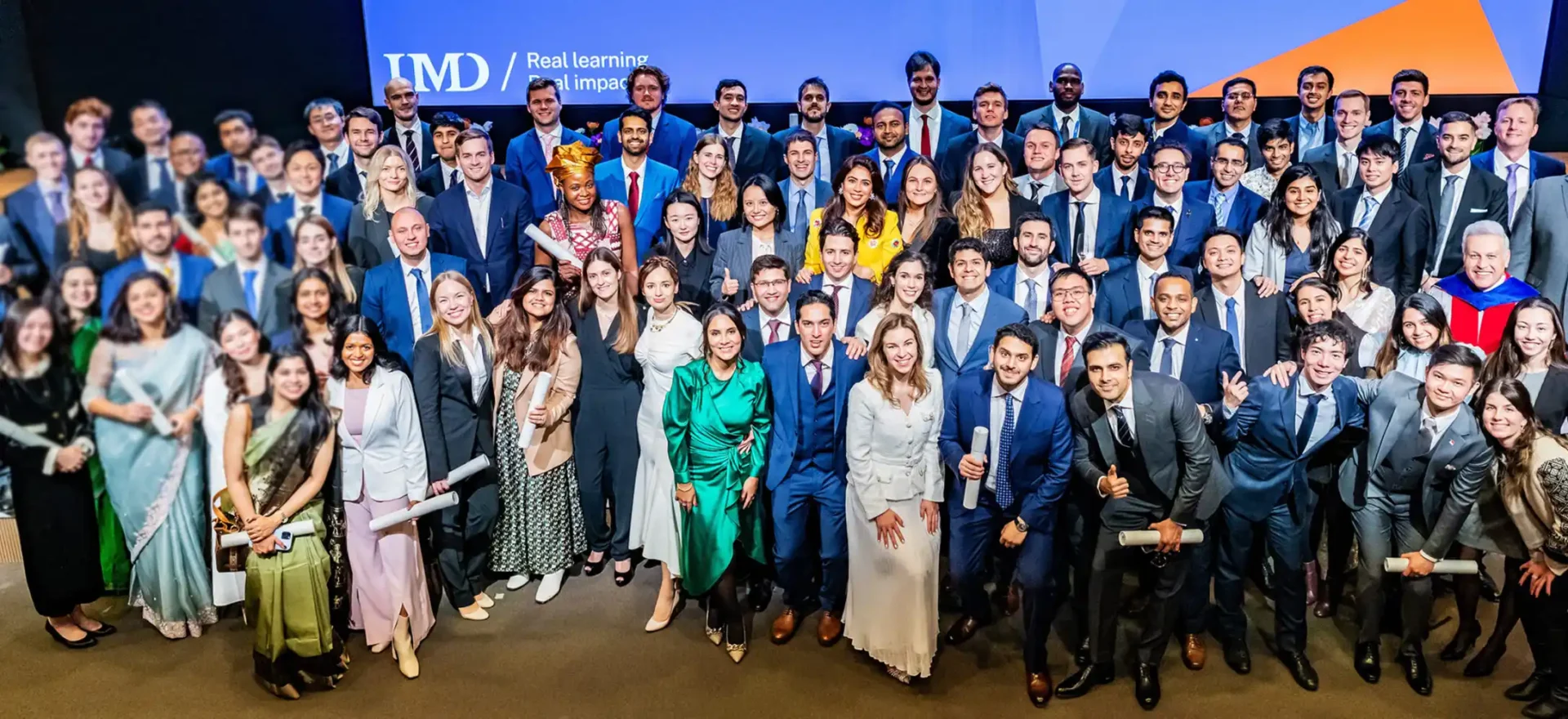
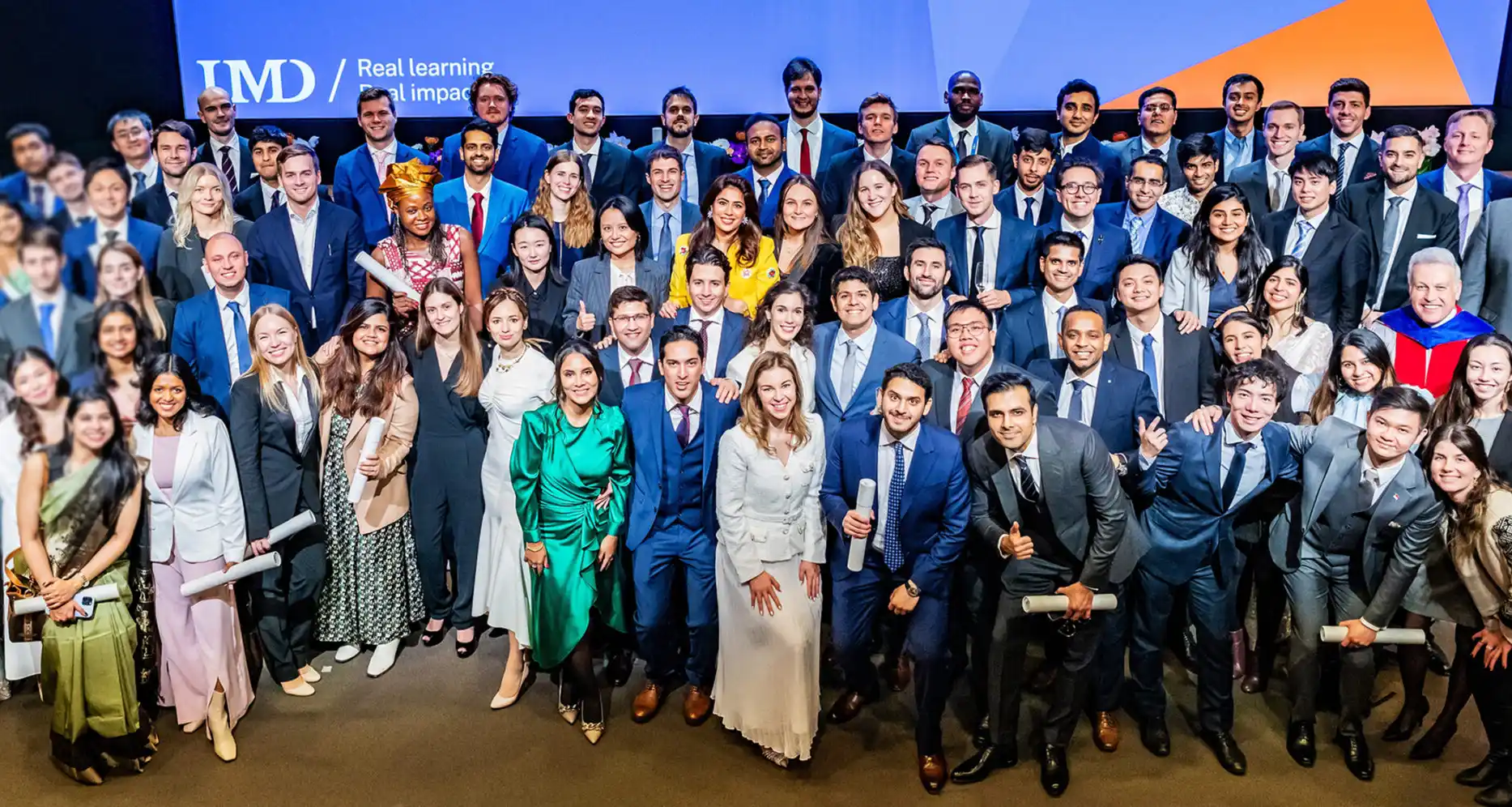
Master of Business Administration (MBA)
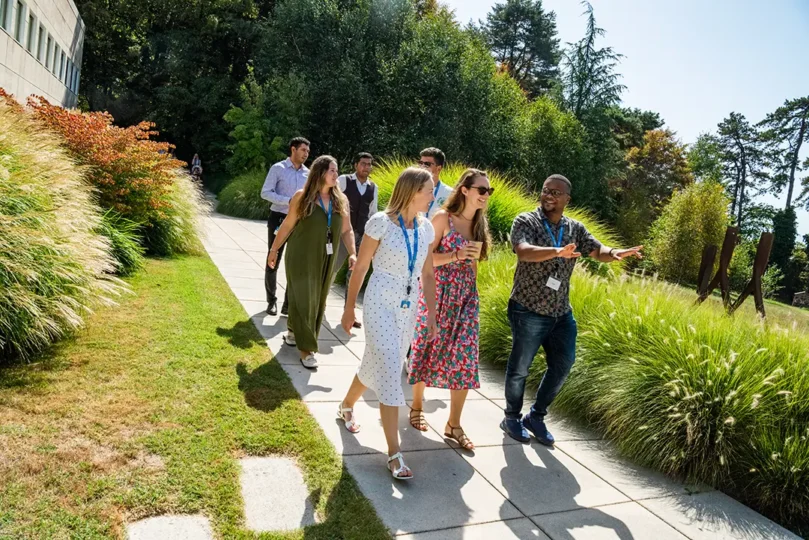

Submit a simplified application for the chance to take part in a dynamic and interactive online experience during which you will complete various assessment activities. The top performer of each challenge will be awarded a scholarship and a place in our next MBA Class.
*Based on 2022 class stats.

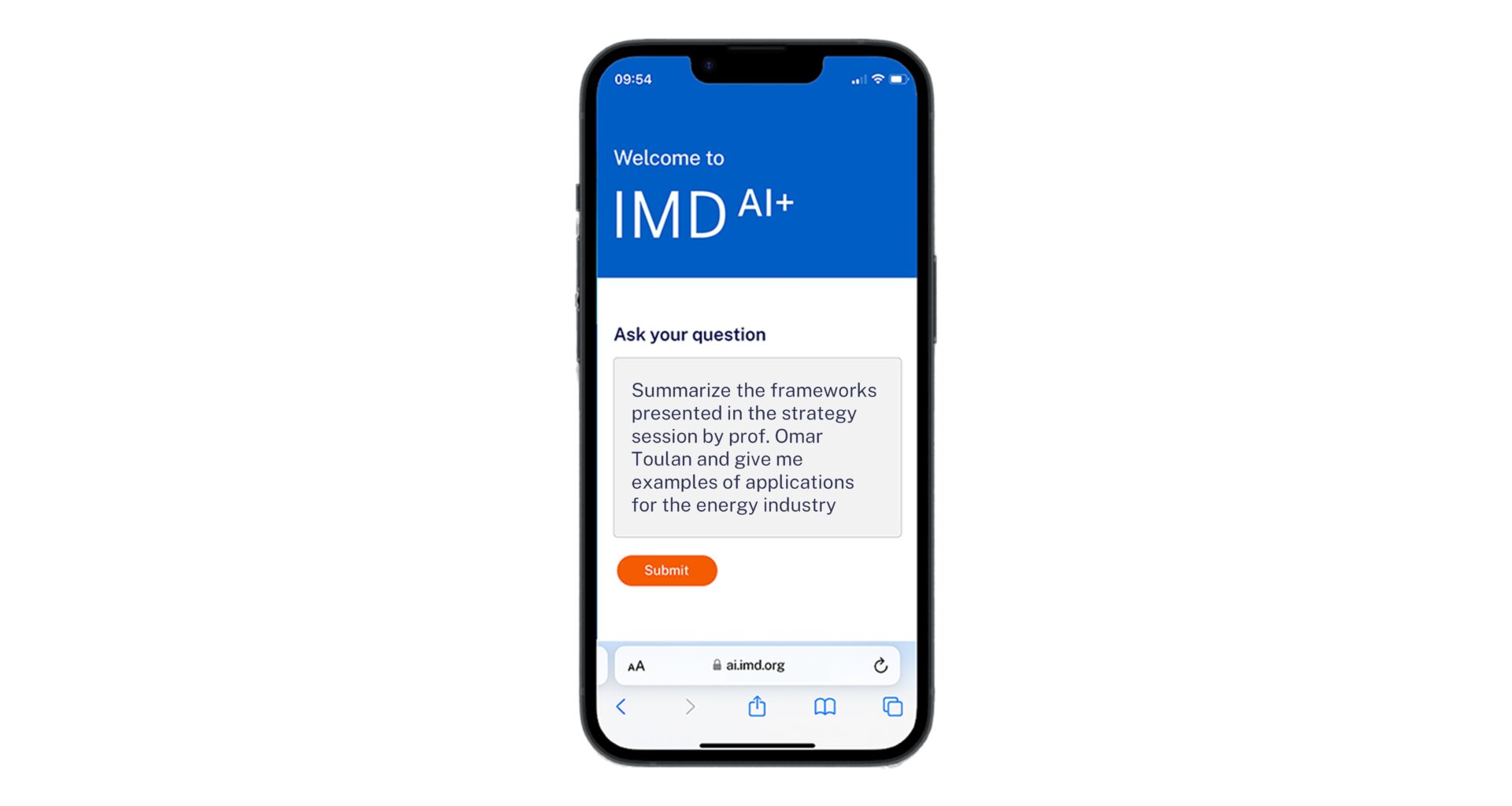
Harness the power of IMD’s generative AI
Enroll in the IMD MBA program to access IMD AI+ and unlock the power of hyper-personalized learning.
Use IMD’s award-winning app, trained in real time on our program sessions, research, and thought leadership, for an interactive learning experience during and after the program.
Go much deeper into specific areas of the program topics related to your industry, personal context, and organizational challenges.
Access IMD faculty expertise to guide you as you apply your learning back at work and continue to build on your knowledge far into the future.

IMD’s global distinction: leading the world in business education and leadership
As a leading business school, IMD is recognized for its impactful education and has consistently ranked highly.
Renowned globally for its MBA program, IMD’s excellence in teaching, research, and service is highly regarded by top employers. Joining IMD means becoming part of a community committed to excellence and educational transformation, providing resources to help achieve career goals and make a lasting business impact.


